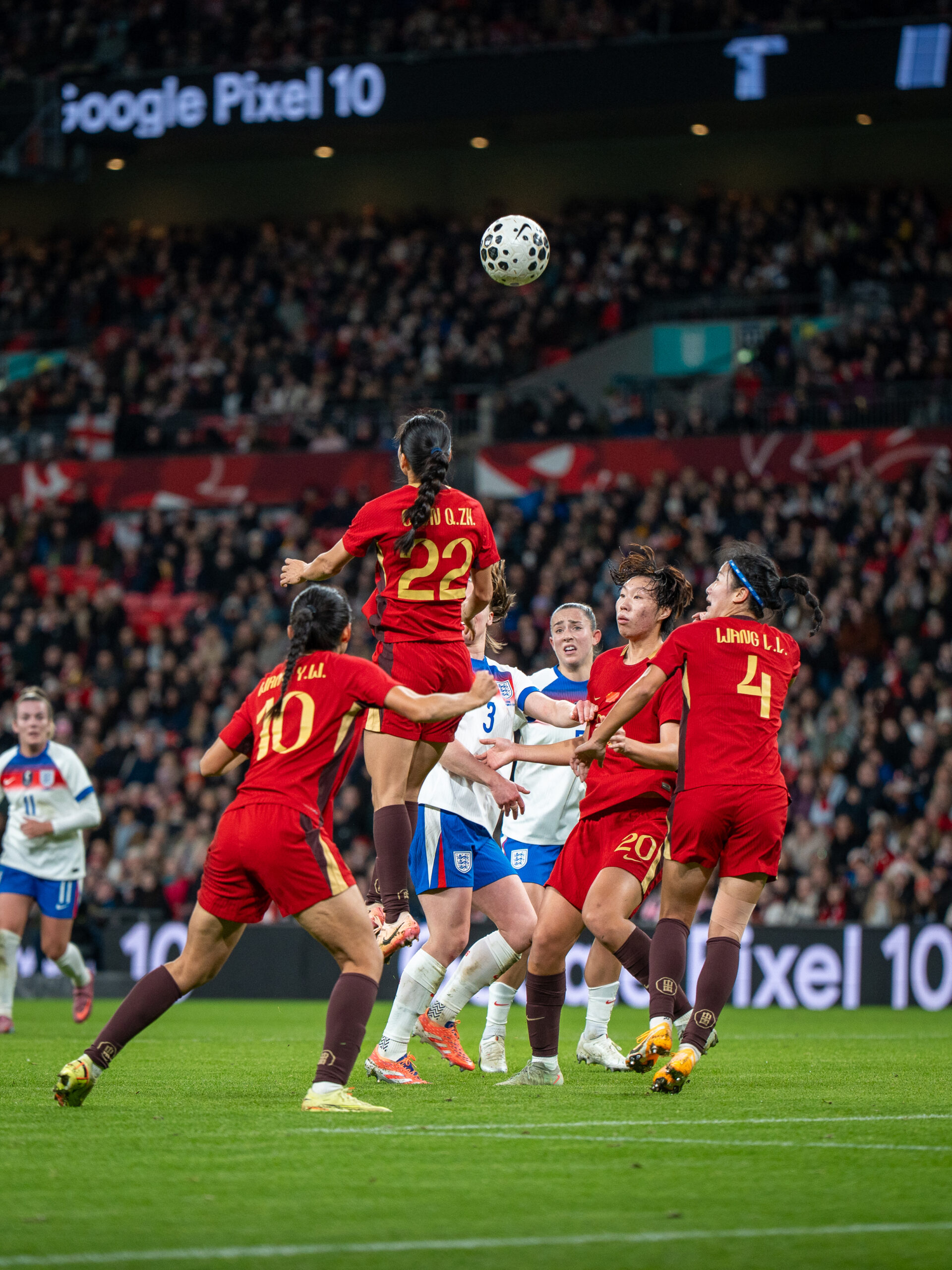Started by the Dutch Football Association, the One Love armbands promote unity, standing up against any discrimination. They also take into account the ‘One Love’ we all share: football. The armband illustrates inclusion, inviting players to show their support to the campaign of anti-discrimination, anti-racism, LGBTQ+ rights and human rights.
We saw controversy arise during the 2022 Men’s World Cup, when FIFA held the tournament in nations that hold homophobic, anti-LGBTQ+ laws. FIFA banned nations from wearing the armband. The organisation warned them of the sanctions that would occur if the armband was worn.
In relation to this, Alex Scott spoke on the importance of the rainbow armband. She mentioned the ‘ongoing’ impact of dedicating her support towards the LGBTQ+ community. In an appearance at the GQ Heroes event, Scott stated when speaking to Paul Epworth:
“Wearing the armband, I don’t want you to even ask me any questions about it.”
We saw Leah Williamson appear in front of the Oxford Union, where students questioned her on LGBTQ+ rights and FIFAs attempt to remove the rainbows armbands from the pitch.
“If I was at the men’s World Cup when they were threatening to card and ban players, I would have served the ban. I wouldn’t have played the game because there’s no way I wouldn’t have worn that armband.” (Oxford Union/YouTube)
The women’s game has consistently demonstrated acceptance for players and fans who are a part of the LGBTQ+ community. Numerous players, such as Beth Mead, openly speaking out about her sexuality.
Mead, player for Arsenal Women and England Lionesses, was interviewed by Sky Sports on the importance of her support for the community. She explained her time growing up in Whitby as an area where:
“There [weren’t] many people who [she] knew that were openly gay.”
Mead herself struggled with the stigma and said that:
“It was something that was very hard for me to say” as a result of it “not [being] socially accepted.”
She referred to the fact that:
“The womens game, it is more the norm … as [she] has never actually physically come out and said ‘I’m gay’”. Something that is different to the men’s game, and she “wants to bridge the gap and help the men.”
Mead finishes her answer with:
“You can’t help who you fall in love with and if you’re happy at the end of the day, you have just got to be happy, life’s very short.”
This quote itself emphasises the importance of the One Love armband. Mead explains how it holds the power to guide those that are struggling to open up about their sexuality.
Historically, since the 1920s, there has been a number of female players openly part of the LGBTQ+ community. Specifically, an individual whoo many recognise as an icon for the women’s game and for gay rights, Lily Parr.
In 1921, despite the fact that the women’s game was growing in popularity and creating huge crowds in attendance to their matches, the FA announced a ban on women’s football explicitly, stating:
“Complaints [had] been made as to football being played by women, the Council [felt] impelled to express their strong opinion that the game of football is quite unsuitable for females and ought not to be encouraged.”
Parr was recognised to be “the most brilliant female player in the world”. She stood up against the ban and the barriers in society against females playing football. She and her teammates continued to play football, raising money for charitable causes, however due to the ban they were unable to play in large venues and therefore unable to raise as much as they had before.
When new leaders took over the team Dick, Kerr & co, they sacked Parr and other female players. As a result she started working at Whittingham hospital, where she met her partner Mary. They refused to repress their relationship, despite the stigma at the time.
Parr is now an icon in women’s football and gay rights history.
Her story demonstrates that the One Love armband not only represents inclusivity and equality for the LGBTQ+ community today, it also shows respect for the previous individuals that stood up against the stigma, impacting the game of women’s football forever.
Photo – https://static.standard.co.uk/2022/07/05/15/newFile-4.jpg?width=1200&height=1200&fit=crop



